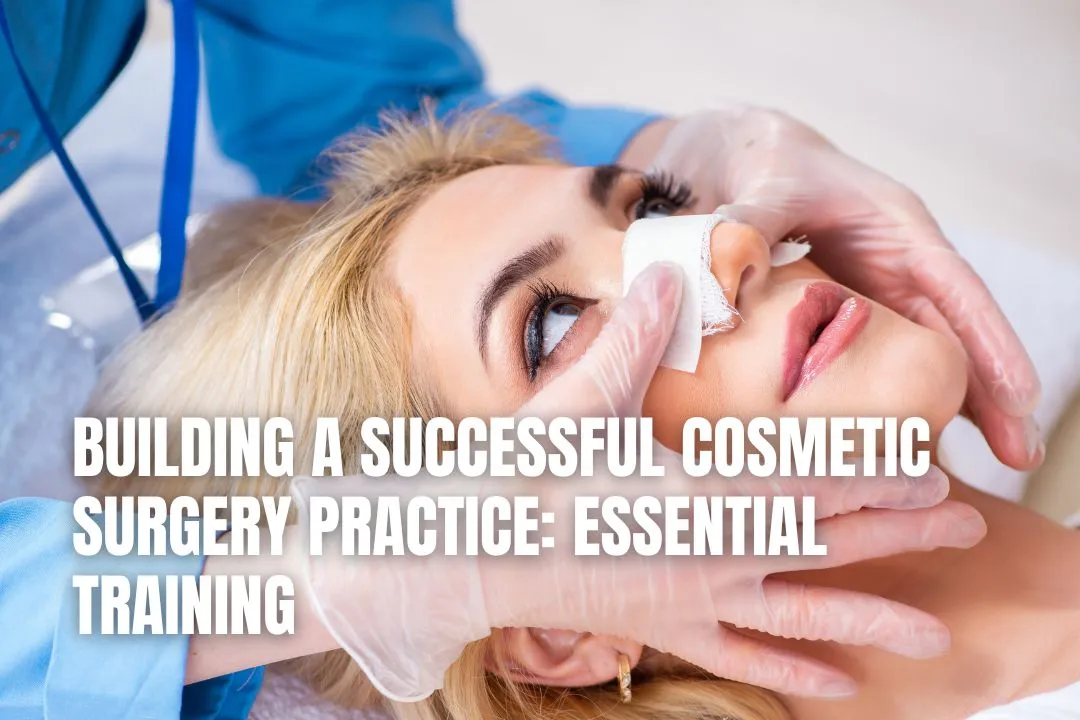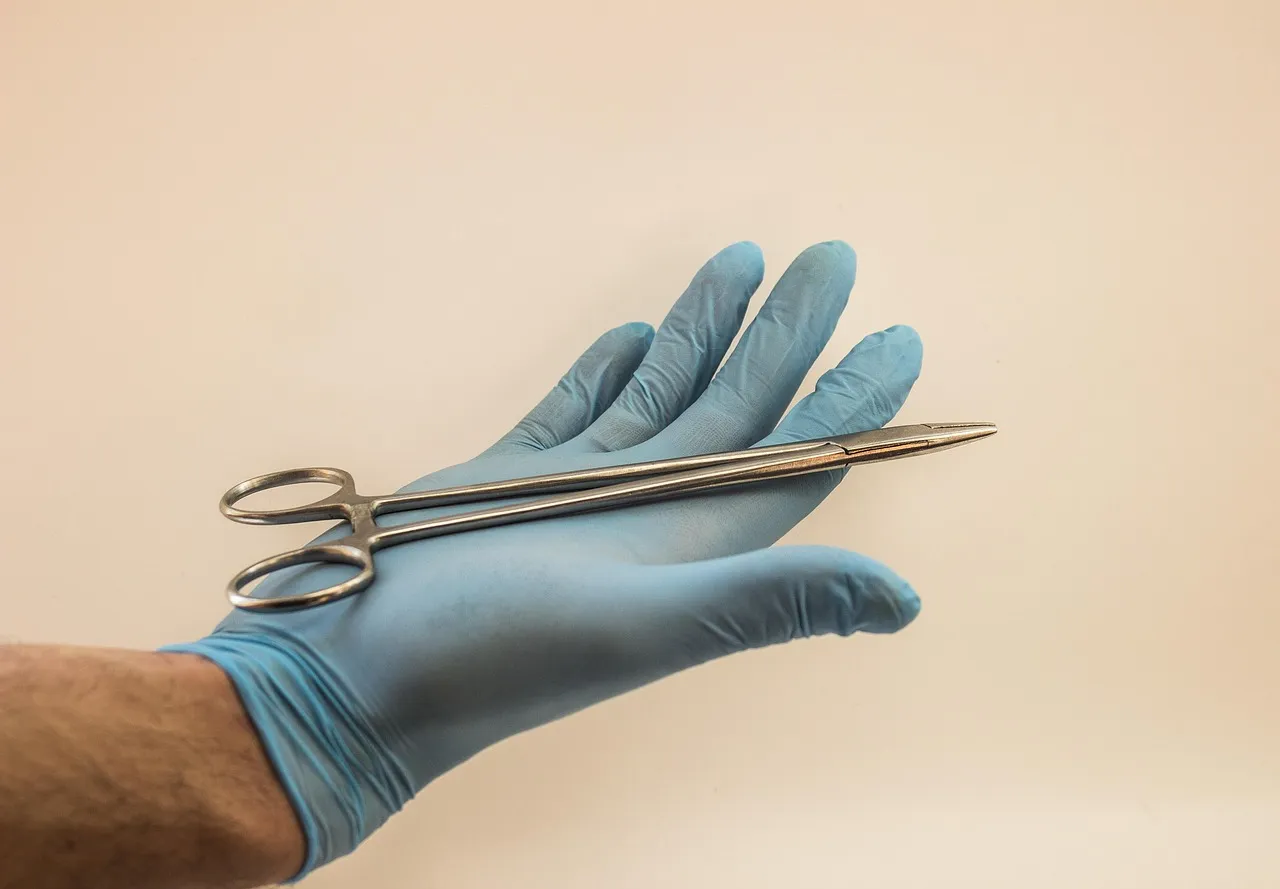
Editorial Disclaimer
This content is published for general information and editorial purposes only. It does not constitute financial, investment, or legal advice, nor should it be relied upon as such. Any mention of companies, platforms, or services does not imply endorsement or recommendation. We are not affiliated with, nor do we accept responsibility for, any third-party entities referenced. Financial markets and company circumstances can change rapidly. Readers should perform their own independent research and seek professional advice before making any financial or investment decisions.
Aspire to own a profitable cosmetic surgery practice that thrives in the midst of a competitive environment?
Look no further, because here we will be walking through everything you need to know.
As of now, the plastic surgery industry is booming.
The industry is actually experiencing rapid growth. Recent statistics show a 5% increase in cosmetic surgery procedure volume from 2022 to 2023, and there are no signs of growth slowing down in the near future.
But here's the problem:
Not every surgeon has what it takes to grow a practice and benefit from the demand for cosmetic surgery.
Building a successful cosmetic surgery practice is much more than medical school, residency, and even a general surgical fellowship or plastic surgery residency.
Cosmetic surgery practice growth and business building takes a specialized skillset that comes with targeted training and education.
To put it plainly, the highest earning cosmetic surgeons are those who invest in themselves and their own development.

If you look at current projections for the cosmetic surgery market, it is expected to reach $76.77 billion by 2032 with a growth rate of 3.8% per year.
With this kind of increase in the cosmetic surgery market, one would expect a ton of new surgeons to jump into the field and start practices.
But that is not the case.
So what is it that allows some cosmetic surgery practices to be more successful than the majority?
Specialised, advanced training.
You see, while general medical training provides a foundation, cosmetic surgery requires specific skills, patient consultation abilities, and an aesthetic sense that can only be honed through dedicated education and training.
Here's a simple way to look at it…
Every year, thousands of doctors graduate from their residency training programs. But only the surgeons who choose to pursue further specialized training in cosmetic procedures will gain the expertise needed to perform intricate surgeries safely and deliver the aesthetic results that patients desire.
This is where specialized training programs like implant courses live become a game-changer. Programs like these provide hands-on experience with the techniques and technologies that patients are seeking.
Clinical skills alone will not build a successful, profitable cosmetic surgery practice. In fact, the most successful cosmetic surgery practices are those run by surgeons who have a business background as well.
You need to have a firm grasp of:
With over 17.4 million surgical cosmetic procedures now performed in the industry every year globally, operating a practice with excellent efficiency is no longer a nice to have, it's a matter of survival.
If you are wondering about the most efficient way to become proficient in new techniques, The best method is live, hands-on training.
Here is why this is so.
Traditional medical school and training are very theoretical. It is about learning concepts and observing surgeries, but hands-on practice in cosmetic surgery is an art that requires muscle memory, spatial awareness, and split-second decision making that can only be developed through actual practice.
The best type of training program is one that offers:
This intensive, hands-on training significantly shortens the learning curve and helps surgeons to deliver better patient outcomes from the very start.
In cosmetic surgery, patient trust is everything.
Cosmetic surgery is unique in that patients often have the luxury of choice in picking their surgeon. They have the time to research, read reviews, and compare before-and-after photos online.
But what are they really searching for?
Proof that their surgeon has put in the work to receive advanced training and keep up with the latest techniques.
Patients are looking for evidence that their surgeon has:
When patients see a level of commitment to excellence, they are willing to pay a higher price and refer friends and family.
The most successful cosmetic surgeons know how to market themselves and communicate their expertise to patients.
But here is a fact:
Most surgeons suck at marketing. They assume patients will see their credentials and automatically choose them over other competitors.
But that is not how the patient's journey works.
Instead, you need to take the initiative to showcase your training and certifications through the following:
The goal is to position yourself as the obvious choice for cosmetic surgery patients who need the procedures that you are trained to perform.
I bet you do not know this:
The highest earning cosmetic surgeons are frequently the ones who invest the most in continuing education.
The reason being, cosmetic surgery is an industry that is constantly changing. New techniques, technologies, and approaches are constantly being developed. Cosmetic surgeons who are able to stay on top of trends can:
The return on investment in advanced training pays back many times over with increased patient volume and higher fees.
Smart cosmetic surgeons know that specialised training is not an expense, it is an investment in building a profitable practice.
Here is one way to look at it:
A single cosmetic surgery procedure that you are able to perform safely and effectively could bring in anywhere from $10,000 to $20,000 in revenue. Now imagine being able to master five such procedures, and you have potentially added $50,000 to $100,000 to your annual income.
The training cost? Typically a fraction of that potential revenue.
But the returns go way beyond that:
Not all training programs are equal.
Here are the things to look for in a good training program:
The right training program becomes a catalyst for practice transformation, setting the stage for many years of successful practice growth.
Building a successful cosmetic surgery practice takes more than just clinical skills, it requires a commitment to ongoing investment in specialised training and business education.
The surgeons who succeed in today's competitive landscape are the ones who continuously upgrade their skills, stay current on industry trends, and position themselves as the go-to experts in their desired procedures.
With the cosmetic surgery market set to continue its rapid growth, there is no better time than the present to make the investment in advanced training that will set your practice up for long-term, sustainable growth.
Specialised training goes beyond general medical education, providing the specific skills, aesthetic sense, and patient consultation abilities needed for intricate cosmetic procedures. It helps surgeons perform safely and deliver the desired results, making them stand out in a competitive field.
Beyond clinical skills, surgeons need a firm grasp of patient consultation, efficient practice management, financial planning for investments, effective staff training, and robust risk management. These skills ensure the practice runs smoothly and profitably.
Hands-on learning, especially with direct supervision and real patient cases, is vital. It helps surgeons develop muscle memory, spatial awareness, and quick decision-making skills that theoretical learning cannot provide, leading to better patient outcomes from the start.
Surgeons should actively showcase their training and certifications through website content, before-and-after photos, patient testimonials, educational materials, and professional speaking engagements. This helps position them as the expert choice for patients.
Absolutely. The cosmetic surgery industry is always changing. Surgeons who invest in continuing education can charge higher prices for new procedures, attract patients seeking the latest treatments, achieve better outcomes, and reduce complication rates, leading to significant returns.
Look for programs with experienced instructors, comprehensive curricula covering both techniques and business skills, hands-on training with real cases, small class sizes for individual attention, ongoing support, and accreditation from professional organisations. Essential Training offers programs that meet these high standards.